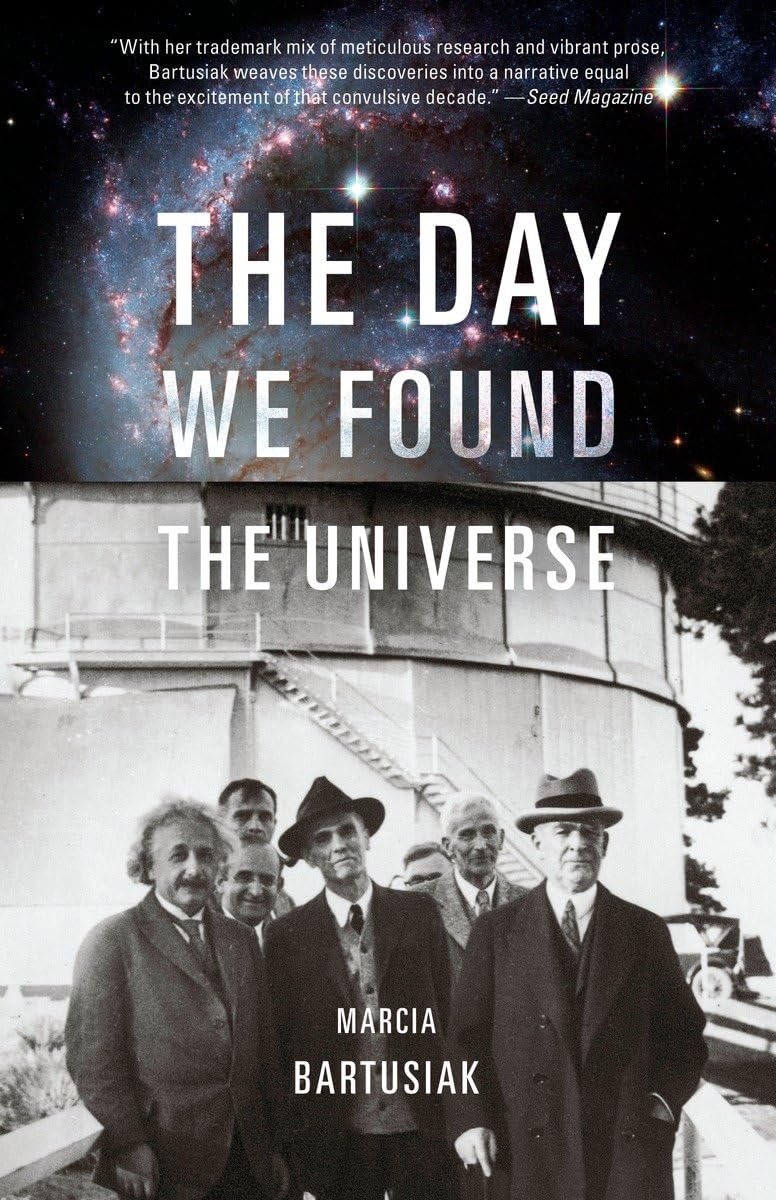معلومات عنا
حقوق الطبع والنشر © 2024 Desertcart Holdings Limited


The Day We Found the Universe
R**S
Excellent history of modern cosmology, and of how science is done
This is a very satisfying book. Well written, it gives a rich and immediate history of the evolution of our thinking in the field of cosmology since the early 1800s. One of the things Bartusiak has excelled in is her depiction of the intimate connection between the parallel developments in equipment (telescopes, spectograhy, etc.), scientific understanding (relativistic effects, quantum mechanics), and cultural norms leading up to Hubble's breakthrough in "seeing" the vast, ever-expanding sea of galaxies we now understand to inhabit our visual universe. It is fitting that most of these scientific lights—including Pickering, Hale, and of course Hubble—have had institutions or telescopes named after them, and Harlow Shapley by a galactic supercluster. It is a shame that Henrietta Leavitt has not yet been so honored, since her behind-the-scenes work was key in bringing about this chain of discovery. Perhaps one of these days that will happen.I liked the fact that Bartusiak did not gloss over the messiness of the process. Her treatment of both personalities and the give and take in both theorizing and data was rich enough in details and nuance to help us appreciate that doing science is a process, not a fiat, and that openness and intellectual honesty are necessary virtues if we are to progress.I recommend this book to anyone who loves science, is interested in astronomy and cosmology, or just likes a good story. A cursory background in basic physics and chemistry would be helpful, but even without it, an intelligent reader would likely appreciate the collective effort and intelligence that has gone into elucidating the nature of our universe.
L**.
Very good book to understand modern astronomy
This book covers the beginning of the modern astronomy in an objective and deltailed way taking into account all the actors and their contributions.
A**E
great science writing
I've been researching the history of astronomy in the 20th century, when I borrowed Bartusiak's book about the work paved the way for Hubble's important discoveries. It was so excellent, I had to buy my own copy. Bartusiak is a clear writer with a gift for putting the pieces together and laying things out in an orderly way. She stands back as a writer and lets the scientists shine, and she is there for her readers, making sure that she's explained discoveries well enough that non-scientists can appreciate why such a discovery mattered and what in enabled scientists to do next. . . Bartusiak is a great science writer. (Which is probably why she is at MIT. )
P**N
Absolutely brilliant
I admit, I am only half way through but I really like this book. It is so interesting and grips all the while you learn. It is well written and insightful. Can't wait to finish it (during the next few days!)
M**S
Discover the universe in this marvellous book
This is a wonderful book and I would recommend it to anyone who has a love of history, science and astronomy. In fact whatever area of science you are in, read it. I have never read one better in over 60yrs. The story is actually exciting with the most brilliant characterisations plus this was a very fertile time for astronomy with new, better telescopes becoming available e.g. the amazing Crossley 60" and the 100" both at Mt Wilson. But one outstanding story is that of Henrietta Leavitt and her analysis of the Cepheid variable stars [I will say no more except her subsequent treatment was, is? outrageous]. The story has everything: respect, jealous rivalry, excitement at the marvellous discoveries made in this small period of time about late 1800's to 1930's and it was the one area of science at that time which led to the blooming of the USA as a major centre for study and discovery.
ترست بايلوت
منذ شهر
منذ أسبوع